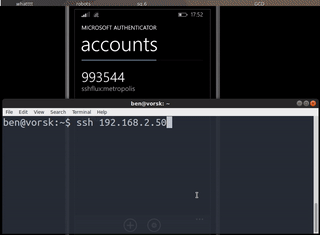In our world today, where so much of what we do happens online, keeping things private and safe is, you know, a really big deal. Every time you connect to something far away, whether it's a computer at work or a server that holds your website, there's a need for a kind of digital handshake that proves you are who you say you are. This digital handshake needs to be strong, very strong, so that nobody else can pretend to be you or listen in on what you are doing. It's about making sure your interactions across the internet are kept just between you and the system you're trying to reach, essentially.
You see, getting onto a computer that isn't right in front of you, perhaps one that's sitting in a data center miles away, usually happens through something called SSH. This isn't just some fancy word; it's, in a way, a set of rules that makes sure your link-up is private. It helps you get signed in and do what you need to do, all while keeping prying eyes out. It's what lets folks look after computer systems and move files around safely, even if the pathways they're using on the internet aren't exactly private. This method is, quite frankly, a cornerstone for nearly every big computer storage place and in every really big business, you know, for keeping their digital operations humming along safely.
But here’s the thing, this safe way of connecting relies a lot on something called "keys." Think of them like very special, very private digital passes. If these passes aren't looked after properly, if they're left lying around or get into the wrong hands, then all that safety we just talked about can, pretty quickly, disappear. That's why having a good way to handle these SSH keys, a proper SSH key management system, is so, so important. It’s about making sure these vital digital passes are created, kept, and used in a way that truly keeps your distant connections secure and sound, every single time.
- Access Remoteiot Examples
- Remote Management In Iot
- Progressive Screens Carmel In
- वब एकसस आईओट डवइसस मअनग
- How To Ssh Into Raspberry Pi Outside Network
Table of Contents
- What is SSH and Why Does It Matter?
- How Does SSH Help You Connect Securely?
- Why Do We Need an SSH Key Management System?
- Setting Up SSH - A Quick Look
- What Happens If Your SSH Keys Aren't Managed Well?
- Simple Steps for Better SSH Key Management System Practices
- Picking the Right Tools for Your SSH Key Management System
- Thinking About Your SSH Key Management System Future
What is SSH and Why Does It Matter?
So, what exactly is this SSH thing we keep talking about? Well, it stands for "Secure Shell," and it's, you know, a way for your computer to talk to another computer that's not right next to you, but to do it in a private way. Imagine sending a secret message across a crowded room; SSH is like the special code that makes sure only the person you're sending it to can read it. When you want to get onto a computer far away, maybe a server in another city, you use a special instruction to kick off a program that makes this safe link-up happen. This program, kind of like a friendly helper, makes sure you can link up safely with that distant computer, which could be another Linux setup, a security device for your network, or even a system running a completely different kind of software. It just hooks you up and signs you in to the particular address you tell it to go to, basically.
The main reason SSH is so important is because it builds a private pathway between two points. This "secure shell" way of doing things actually sets up coded links for when you want to sign in to computers from afar or send files back and forth. It's a collection of computer programs that lets you look after computer systems and move files around safely, even if the networks you're on aren't private. OpenSSH is, you could say, the top choice for linking up to computers from far away using this secure shell method. It makes all your messages private, so nobody can listen in, take over your connection, or try other bad things. You'll find it, pretty much, in almost every big computer storage place and in every really big business, you know, for keeping their digital operations humming along safely. It’s what helps keep the digital lights on and the information safe, which, honestly, is pretty critical for any operation these days.
How Does SSH Help You Connect Securely?
You might be wondering, how does this whole SSH thing actually keep my connections safe? Well, it's pretty clever, actually. When you use SSH, it doesn't just send your information out into the open for anyone to see. Instead, it takes everything you send – your commands, your files, even your password if you're using one – and scrambles it up into something unreadable. This scrambling, or what we call "encryption," means that even if someone were to somehow get their hands on your data as it travels across the internet, they wouldn't be able to make any sense of it. It’s like putting your message into a secret code that only the person on the other end has the key to unlock, you know?
- एसएसएच एकसस आईओट उदहरण
- Web Remote Access Raspberry Pi
- Alessandra Brawn
- Beeg Search
- Is Kaitlin Olson Related To Mary Kate And Ashley
The core of this safety comes from how SSH handles what's called a "key pair." This is a set of two special, long strings of characters: a public key and a private key. You keep your private key very, very safe on your own computer, and it never leaves there. The public key, on the other hand, is something you can share. You put it on the remote computer you want to connect to. When you try to connect, your computer uses your private key to prove who you are to the remote computer, which checks it against the public key it has. If they match up, then, basically, a secure pathway is created. This method is much safer than just using a password alone, because even if someone guesses your password, they still won't have your private key, so they can't get in. It's a bit like having a lock that needs two different, very specific keys to open, and you only give one of them out, you know?
Why Do We Need an SSH Key Management System?
So, we've talked about how great SSH is for keeping things safe, but here’s where an SSH key management system comes into the picture. Imagine you have a hundred different computers you need to connect to, and each one needs a special digital pass, or key, to get in. If you just create these keys one by one and save them wherever, you know, on different machines or even on a thumb drive, things can get messy really fast. What if you lose a key? What if someone else gets a copy of one? How do you keep track of which key goes to which system? It can become, pretty quickly, a big headache, and a big risk, too.
An SSH key management system is, essentially, a way to bring order to this potential chaos. It helps you keep track of all those digital passes, making sure they're created properly, stored safely, and used only by the right people. Without such a system, you might end up with old keys still active on systems long after the person who used them has left, which is, honestly, a security hole waiting to happen. Or, you might have keys copied onto too many different computers, making it harder to control who has access. It’s about having a central place and a clear set of rules for handling these very important digital items, so you can always know who has access to what, and you can easily take away access if you need to. It’s really about keeping things neat and tidy, but for your digital security, you know?
Setting Up SSH - A Quick Look
Getting SSH going for a simple connection is, actually, not too difficult to start with. If you're using Windows, for example, you'd just open up your terminal, or what some call a command prompt. From there, getting in with a password is, you know, pretty straightforward. It's just one little instruction. You simply type 'ssh,' then your name on your computer, an '@' symbol, and then the address of the computer you want to reach. For example, if you wanted to open up a program with pictures and buttons, you could add a '-X' option. And, actually, if your name on your computer is the same as your name on the computer you're trying to get into, you can just leave out your name on your computer when you sign in.
But while password login is easy to grasp, the real strength and safety of SSH come from using those key pairs we talked about. Setting up a key pair involves a few steps: first, you create the keys on your local machine. Then, you copy your public key to the remote machine you want to access. After that, when you try to connect, SSH will automatically use those keys instead of asking for a password. This is, basically, much more secure because you're not sending a password over the network that could potentially be intercepted. It’s a bit more work to set up at the start, but for long-term safety and ease of use, it's definitely the way to go, you know, especially if you're connecting often or to many different places.
What Happens If Your SSH Keys Aren't Managed Well?
If you don't have a good SSH key management system, or if you just let your keys float around without much thought, you're, essentially, leaving your digital doors wide open. One big problem is having too many keys. Over time, people create new keys, but they don't always get rid of the old ones. So, you end up with a pile of digital passes, and you might not even remember what each one is for. This makes it really hard to keep track of who has access to what, and it increases the chance that an old, forgotten key could be used by someone who shouldn't have it, you know?
Another issue is what happens when a key gets lost or stolen. If a private key falls into the wrong hands, that person can, basically, pretend to be you and get into any system that key allows access to. Without a proper SSH key management system, it can be very difficult to figure out which systems that compromised key had access to, and even harder to quickly stop that access across all those systems. It’s like losing your house keys and not knowing which doors they opened, or if you have a spare set lying around somewhere. This can lead to serious security problems, like someone looking at private information, changing important files, or even taking over entire systems. It's a pretty serious concern, honestly, for any organization that relies on secure remote access.
Simple Steps for Better SSH Key Management System Practices
To avoid those headaches and keep your connections safe, there are some pretty straightforward things you can do to improve your SSH key management system. First off, always protect your private keys with a passphrase. Think of a passphrase as an extra lock on your key. Even if someone gets a copy of your private key, they still can't use it without knowing that special word or phrase. It adds, basically, a layer of protection that's really important, you know?
Next, try to keep your keys organized. Don't just leave them scattered across different folders or machines. Consider using an SSH agent, which is a program that holds your private keys in memory for you, so you don't have to type your passphrase every single time you connect. This makes things more convenient while still keeping your keys safe. Also, it’s a good idea to regularly check which keys are active and remove any that are no longer needed. This means getting rid of old keys from former employees or from projects that have finished. It’s like cleaning out your wallet, getting rid of old cards you don’t use anymore. Doing these simple things can make a big difference in keeping your SSH connections secure and your SSH key management system in good shape, pretty much.
Picking the Right Tools for Your SSH Key Management System
When you're looking to really get a handle on your SSH keys, you might want to consider some tools that can help. For individuals, an SSH agent, as mentioned, is a simple and effective way to manage your personal keys. It keeps your private keys loaded so you don't have to re-enter your passphrase for every connection, which is, you know, a real time-saver. Many operating systems have one built-in or available to install, so it's often easy to get started with, basically.
For bigger groups or businesses, a more centralized SSH key management system might be needed. These systems can help automate the process of creating, distributing, and revoking keys across many different servers and users. They can offer a clear view of who has access to what, and they can make it much easier to react quickly if a key needs to be taken out of circulation. Some systems even integrate with other security tools, giving you a more complete picture of your overall security posture. Choosing the right tool depends on how many keys you have, how many people are using them, and how much control you need over the whole process. It's about finding something that fits your specific needs, you know, and makes key handling less of a chore and more of a controlled operation.
Thinking About Your SSH Key Management System Future
As our digital world keeps changing, thinking about the future of your SSH key management system is, you know, a pretty smart move. The number of connections we make and the systems we rely on are always growing. This means the task of looking after SSH keys isn't going to get any smaller; if anything, it's likely to become even more important. We might see more automation in how keys are handled, with systems that can automatically create new keys, put them where they need to go, and even get rid of them when they're no longer active, all without much human involvement. This would make things much smoother and, honestly, a lot safer too.
Also, there's a growing focus on making sure that access is granted only for the exact time it's needed, often called "just-in-time" access. This means a key might only be valid for a very short period, like an hour, and then it automatically stops working. This kind of approach, pretty much, lowers the risk if a key ever gets into the wrong hands, because its usefulness would be so limited. Keeping an eye on these kinds of developments and thinking about how they might fit into your own SSH key management system can help you stay ahead of potential security issues and keep your digital connections as safe as they can be, you know, for a long time to come.
This article has covered what SSH is, why it's so important for secure remote connections, and why having a dedicated SSH key management system is essential for keeping those connections safe. We looked at how SSH uses key pairs for secure access, the risks involved if keys are not managed well, and some simple steps to improve key handling. We also touched upon the different tools available for managing keys, from individual use to larger organizational needs, and considered future trends that could impact how we handle SSH keys.
Related Resources:



Detail Author:
- Name : Kristina Morar
- Username : uemmerich
- Email : koss.abigayle@gmail.com
- Birthdate : 1974-01-07
- Address : 843 Abel Streets Suite 812 West Claudiaborough, KS 50810-2620
- Phone : +1-339-443-7685
- Company : White Inc
- Job : Physician Assistant
- Bio : Suscipit quaerat et et ipsa voluptas. Tempora rerum quia veritatis quis eum optio eos voluptas. Vel ullam error et illo.
Socials
twitter:
- url : https://twitter.com/josefa5686
- username : josefa5686
- bio : Temporibus veniam dolorem soluta aut. Harum sint deserunt earum consequatur molestiae at. Sapiente praesentium aliquid at ut consequatur eos.
- followers : 6760
- following : 1117
instagram:
- url : https://instagram.com/harvey1998
- username : harvey1998
- bio : Voluptate minus ducimus sit consequatur suscipit dolor. Explicabo et enim nam ab sunt vero sed.
- followers : 3964
- following : 1539
linkedin:
- url : https://linkedin.com/in/josefaharvey
- username : josefaharvey
- bio : Et et quia iusto non architecto.
- followers : 6098
- following : 1157
facebook:
- url : https://facebook.com/harveyj
- username : harveyj
- bio : Cupiditate voluptas omnis aut sit. Neque iste eveniet enim.
- followers : 1835
- following : 2162